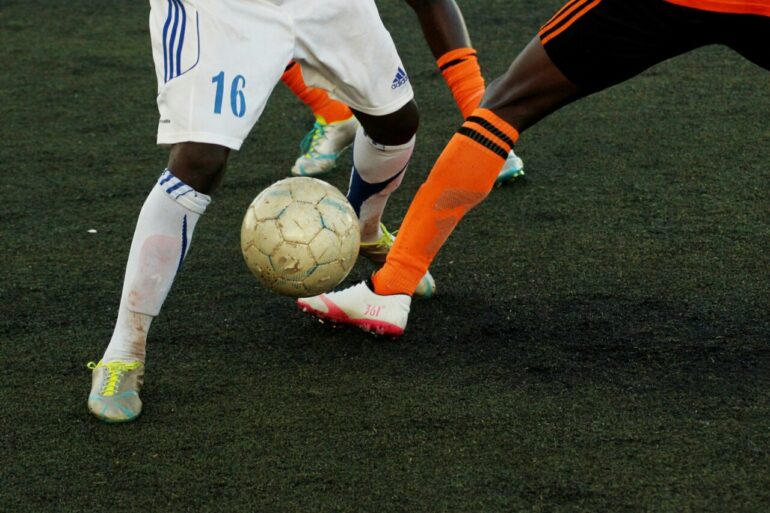Major sporting events offer authoritarian regimes the opportunity to present themselves to the population of foreign states as progressive and open. However, this positive effect on image—or “sportswashing” for short—only works in other states where there is a lack of critical media reporting. This is shown by a study using the example of the 2022 FIFA World Cup in Qatar. The findings are published in the journal PLOS ONE.
To examine whether, and how, hosting the football tournament influenced Qatar’s image, a team of researchers from the WZB Berlin Social Science Center, the University of Konstanz, and the SCRIPTS Cluster of Excellence conducted an experiment among 14,000 people from eight European countries. Participants were presented with different pieces of information about Qatar and the tournament.
In a positive version, the efficiency of Qatar in organizing the World Cup was emphasized, among other things. In contrast, the negative version contained reports of human rights violations and deaths related to the preparations for the World Cup. In the neutral setting, information about the tournament, such as the number of matches, was provided.
Respondents were asked to express their opinion about the regime in Qatar and its role as host of the tournament. The results show that both positive and negative information significantly influenced the respondents’ evaluations, with the negative information having an even stronger effect. People who read negative reports were more likely to view Qatar critically. By contrast, those who received positive impressions were more likely to see the country in a positive light.
When comparing the answers depending on the countries in which the respondents live, it becomes clear that the effect of the information strongly depends on the respective media system. In countries with less media diversity and quality, such as Hungary and Romania, negative information had a greater influence.
In these more controlled media systems, the information was new and therefore more effective. By contrast, people in countries with a pluralistic and independent media landscape, such as Germany and Sweden, were less receptive to the influence of both positive and negative news.
“In these countries, critical debate was already taking place in the media before the World Cup in Qatar,” explains study author Heiko Giebler.
“Major sporting events are always also political events,” says WZB Director Michael Zürn.
“Our study highlights the significance of plural reporting accompanying such sporting events. If, as expected, the 2034 World Cup is awarded to Saudi Arabia, it will be crucial to engage in a critical debate about the human rights situation in the country,” explains Eda Keremoǧlu from the University of Konstanz.
It is not a new phenomenon for authoritarian regimes to host major sporting events to improve their image abroad. Examples include the Nazi regime, which used the 1936 Olympic Games in Germany as a propaganda tool, or the Argentine military junta, which also pursued PR strategies during the 1978 Football World Cup.
“Sportswashing will remain a problem, not least because autocratic regimes are on the rise,” says Zürn. “However, differentiated reporting can significantly reduce the effects of sportswashing.”
More information:
Johannes Gerschewski et al, The limits of sportswashing. How the 2022 FIFA World Cup affected attitudes about Qatar, PLOS ONE (2024). DOI: 10.1371/journal.pone.0308702
Provided by
University of Konstanz
Citation:
Critical reporting weakens the effect of ‘sportswashing’ for authoritarian regimes, experiment reveals (2024, December 6)



